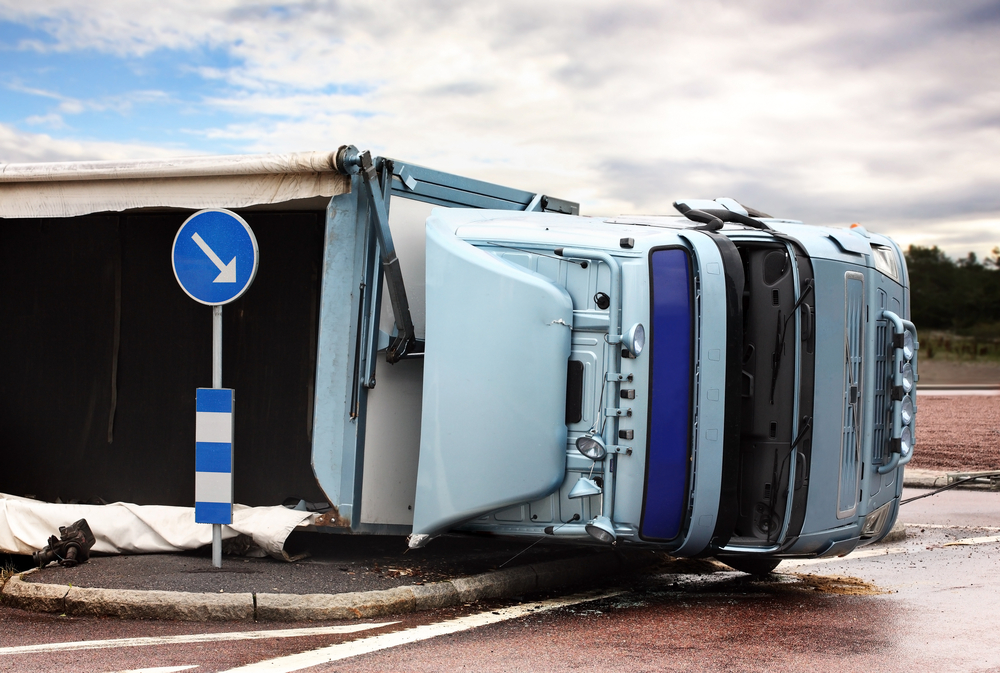Tractor Trailer Accidents
Tractor-trailer accidents, also known as semi-truck accidents or big rig accidents, are a subset of motor vehicle accidents that involve large commercial trucks. These accidents can result in severe injuries, fatalities, and extensive property damage due to the sheer size and weight of the vehicles involved. Here are the causes, consequences, and prevention measures associated with tractor-trailer accidents.
Causes of Tractor-Trailer Accidents:
- Driver Error: Like any other motor vehicle accidents, driver error is a significant cause of tractor-trailer accidents. Fatigue, distracted driving, speeding, and impaired driving are common factors. Long hours on the road can lead to truck driver fatigue, which impairs judgment and reaction times.
- Mechanical Failures: Tractor-trailer accidents can occur due to mechanical failures or equipment malfunctions. Issues with brakes, tires, steering, and other critical components can lead to accidents.
- Overloading and Poor Cargo Management: Overloaded or improperly loaded cargo can affect the stability and control of a commercial truck. Uneven weight distribution can lead to rollovers or loss of control.
- Adverse Weather Conditions: Trucks require longer stopping distances and are less maneuverable, making them susceptible to accidents in adverse weather conditions such as rain, snow, ice, or fog.
- Inadequate Maintenance: Neglected maintenance can result in vehicle defects that contribute to accidents. Routine maintenance is crucial to ensuring the safe operation of commercial trucks.
Consequences of Tractor-Trailer Accidents:
- Severe Injuries and Fatalities: Due to their size and weight, tractor-trailer accidents often result in severe injuries or fatalities, especially for occupants of smaller vehicles involved in the collision. Survivors may suffer from spinal cord injuries, traumatic brain injuries, fractures, and other life-altering conditions.
- Property Damage: Tractor-trailer accidents can cause extensive property damage, including damage to other vehicles and infrastructure. Repairing or replacing damaged property can be costly.
- Traffic Disruption: Serious tractor-trailer accidents can lead to road closures and traffic congestion, affecting the flow of traffic for hours or even days.
- Environmental Impact: Some tractor-trailer accidents involve hazardous cargo, posing environmental risks such as spills or chemical releases that require specialized cleanup efforts.
- Legal Consequences: Tractor-trailer accidents often lead to legal proceedings. Parties involved may seek compensation for medical bills, lost wages, pain and suffering, and property damage through personal injury claims or lawsuits.
Prevention Measures for Tractor-Trailer Accidents:
- Driver Training and Regulation: Ensuring that truck drivers are well-trained, adhere to strict regulations, and follow the hours-of-service rules can mitigate the risk of accidents caused by driver error.
- Regular Vehicle Maintenance: Trucking companies must prioritize regular maintenance and inspections of their vehicles to identify and address mechanical issues promptly.
- Load Securement: Proper load securement practices, including weight distribution and cargo restraint, are critical to preventing accidents related to overloading and poor cargo management.
- Adaptive Safety Technologies: Advancements in safety technologies, such as collision avoidance systems, lane departure warnings, and electronic stability control, can help mitigate accidents caused by driver error.
- Weather Awareness: Truck drivers should receive training in handling adverse weather conditions and exercise caution when road conditions deteriorate.
- Emergency Response: First responders and emergency services should be prepared to manage tractor-trailer accidents effectively, including handling hazardous materials if necessary.
- Public Awareness: Public awareness campaigns can educate motorists about sharing the road safely with commercial trucks, including avoiding blind spots and giving trucks ample space.

